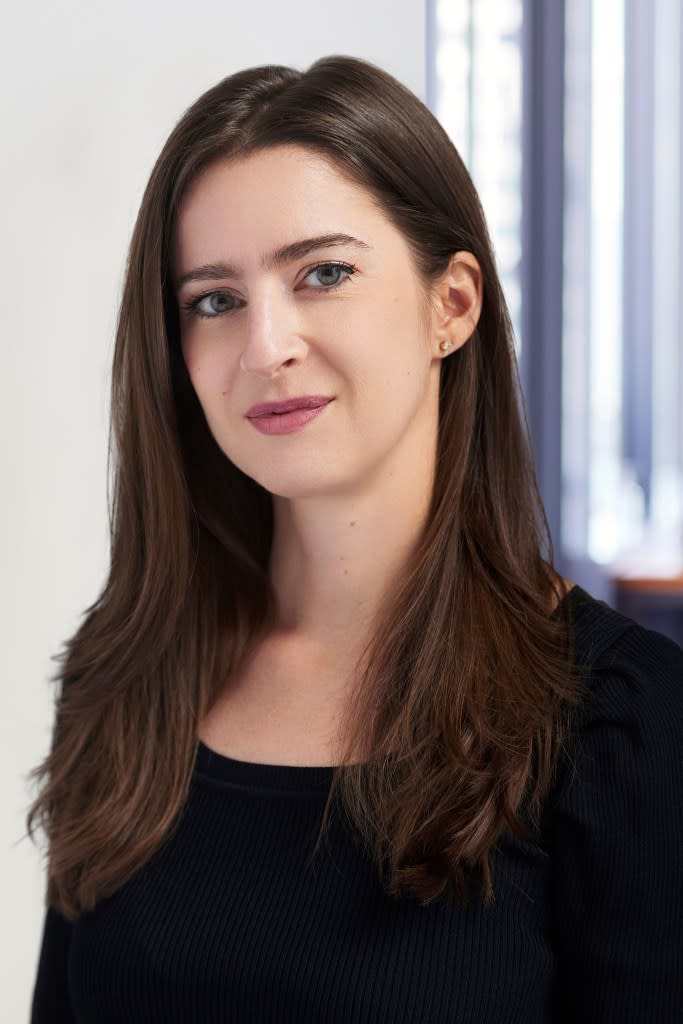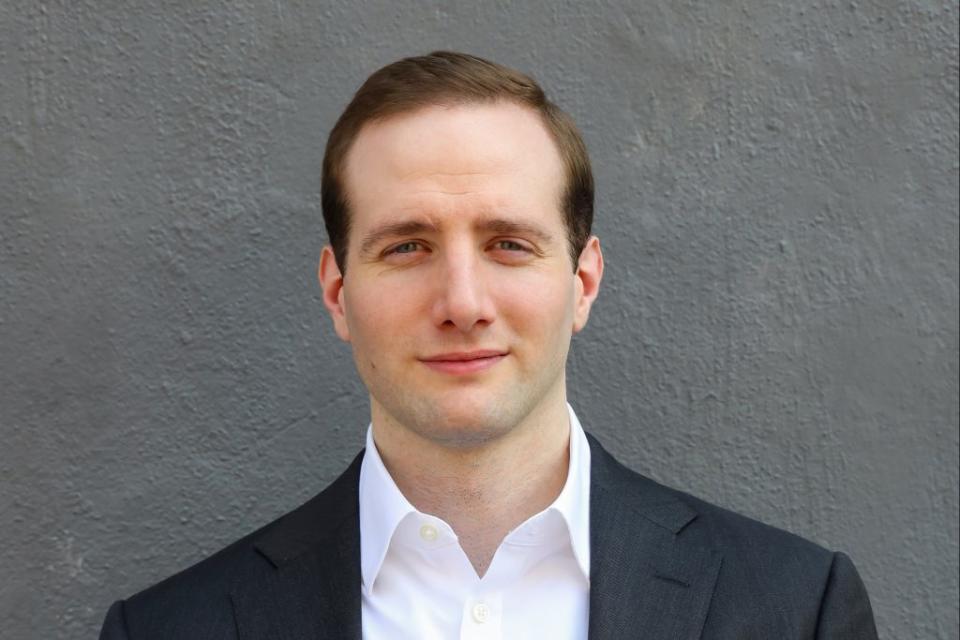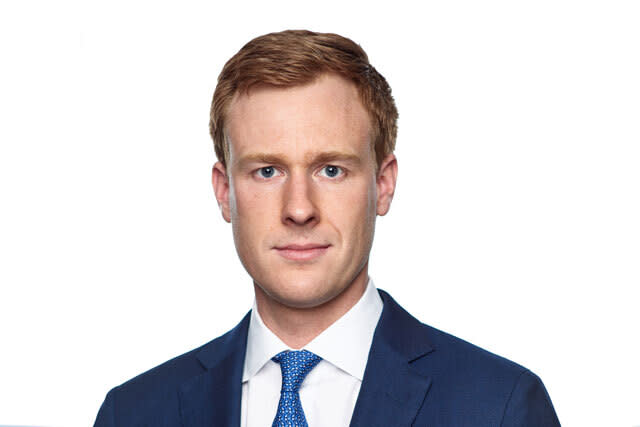Wall Street’s Rising Stars: 7 execs from Goldman Sachs to ParkerGale who are on their way up
Finding a rising star on Wall Street is a little tough right now. The M&A market is in a slump, while IPOs are still few and far between. There’s also a pending presidential election which always makes the markets a little nervous.
In the midst of these choppy waters, Fortune set out to find Wall Street executives who are only navigating them, but moving on up. We reached out to investment banks, and to private equity and venture firms to discover who is doing well. Surprisingly, some firms didn’t want to take part because they felt it was unfair to elevate one person over another. But others came back with suggestions.
To be clear, Fortune’s list of rising stars is not based on any scientific data—these are subjective exercises by their nature. But that doesn’t mean there was no selection criteria. For starters, we didn’t limit the list only to young execs since it’s possible to make a surge at any stage of a Wall Street career. We also didn’t accept every suggestion, and independently vetted the nominees based on their resumés.
Here’s our list of the up-and-comers on Wall Street:
1. Jamison Hill, managing director, Goldman Sachs

Hill, 35, looks to his family for inspiration. His parents were the first of their families to graduate from college, a feat that transformed their lives, Hill said. “My parents are the American dream and I got to see how powerful that was,” he said. After nearly seven years at Bain Capital Ventures, Hill joined Base10 Partners in March 2021, where he led the firm’s Advancement Initiative. He helped raise two funds that invest in pre-IPO companies and donated 50% of the pools’ carried interest to historically black colleges and universities. Over the summer of 2023, Hill moved over to Goldman Sachs asset management, joining the sustainable investing division as a managing director. At Goldman, Hill focuses on the Inclusive Growth fund, which invests in businesses that focus on the underserved across financial services, healthcare, and education/workforce services. Hill leads the financial services vertical, which targets the unbanked and underbanked populations across the globe. He looks to invest in companies that provide digital banking, brokerage and wealth management services, help consumers and small businesses access their credit, or that ease access to government benefits and public assistance. “I’m giving people the same opportunities that my parents got,” Hill told Fortune.
2. Eleanor “Nori” Welles-Gertz, principal, ParkerGale

Like many on our list, Welles-Gertz started off in consulting, spending nearly four years at Treacy & Co. (Treacy was sold to Cherry Bekaert in 2022.) Welles-Gertz, 32, said she left consulting because she “didn’t love waking up every morning existing to create slides.” She moved over to private equity when she realized that the jobs were more invigorating. “In private equity, you can drive change,” Welles-Gertz told Fortune. She joined ParkerGale, a Chicago PE firm that focuses on B2B software, as an associate in 2018. She was promoted to principal in 2023. Welles-Gertz has worked on several deals, including two exits: Thoma Bravo’s acquisition of SMA Technologies in 2022 and the sale of Biscom to Concord Technologies in January. Many of the companies that ParkerGale invests in are founder owned, she said. Founders typically lead their businesses for several years, or even decades, but there’s only so much change these executives can push through, she said. “That’s where we come in and help unlock the next phase of growth,” Welles-Gertz said.
3. Rebecca Liu-Doyle, managing director, Insight Partners

Liu-Doyle, 31, came to Insight about eight years ago from consulting firm McKinsey & Co, where she was a business analyst. In 2016, Liu-Doyle started off at Insight in the “onsite” unit where former operators and consultants work with portfolio companies and help them think through problems. She moved over in 2017 to Insight’s investment side—something that doesn’t happen often since the unit typically promotes from its crop of analysts. Liu-Doyle, who focuses on software, fintech, and consumer internet, has made several investments, including Prose, Linktree and User Testing. She’s also scored some big exits, like Divvy, the fintech that was sold to Bill.com for $2.5 billion in 2021. (Liu-Doyle was promoted to managing director that same year.) Other sales include CUUP, the intimates brand that FullBeauty Brands scooped up in 2023. Liu-Doyle, however, has run into some bumps. Fridge No More, a 15-minute grocery delivery services that Insight invested in in 2021, shut down in 2022 after talks to sell some of its businesses to DoorDash fell through. Liu-Doyle worked closely with the company’s leadership to support them as they wound down, a reality for many startups, a spokeswoman said. “She’s formidable,” they said.
4. Merritt Hummer, partner, Bain Capital Ventures (BCV)

Hummer, 36, began her career at Bain & Co. and spent time at New Mountain Capital and Goldman Sachs before landing at Bain Capital Ventures in 2018. Hummer, who has an engineering degree from Princeton University and an MBA from Harvard, focuses on B2B software companies in the U.S. and Europe at BCV. She has invested in about 10 companies, including Apollo.io, MaintainX, and Pleo. In 2021, one of Hummer’s deals, Smart Rent, went public when it merged with a special purpose acquisition company, or SPAC. That was the same year Hummer was named a BCV partner. She is a highly analytical systems thinker who sees the entire picture, said Matt Harris, a BCV partner. “But she’s also the consummate relationship person, has a broad but still intimate and deep network, and is a great leader inside and outside of Bain Capital,” Harris told Fortune.
5. William Jones, managing director at Apollo Global Management

Private credit has emerged as one of the hottest investment sectors on Wall Street. At Apollo Global, credit is that firm’s largest asset management strategy, with about $500 billion in AUM. Before joining Apollo, Jones started his career at Citi, where he spent nearly six years, with his last position as vice president, U.S. distressed debt. Jones began at Apollo in 2019 as a principal and has since led several big deals at APO, including a Hertz transaction that provided more than $7 billion of capital to the rental car company during the pandemic. In July 2023, Jones helped lead a debt exchange at Carvana that resulted in the creation of more than $7 billion of equity value. Jones is also “incredibly nice, always the first to lend a helping hand,” an Apollo spokesman said.
6. Cav Walters, director, KKR

Walters, 33, has worked at KKR twice during his relatively short time on Wall Street. He initially joined KKR in 2015 as an associate in infrastructure and left in 2017 to get his MBA at Stanford. He returned two years later, rejoining KKR’s infrastructure team, where Walters currently helps lead the transportation and environmental services infrastructure investments in the Americas. Infrastructure at KKR currently has over $59 billion in AUM, up from roughly $4 billion in 2015. Walters has played a big role in deals like KKR’s $4.475 billion acquisition of Atlantic Aviation—one of the firm’s biggest infrastructure transactions—in 2021, as well as the firm’s investment in Boasso Global in 2022 and its merger with Quala a year later that formed Depot Connect International. Infrastructure investing is a fascinating way to marry the investing world with the “real world,” Walters said. “Some of the most interesting and rewarding investments I’ve been a part of have involved working with governments, regulators, and local communities,” he added.
7. Chris Nee, associate, Qatalyst Partners

Nee is another name on the list who began his career on the consulting side, spending seven years at PwC, where he specialized in finance and M&A engagements across technology, industrials, and pharmaceuticals. He interned at Qatalyst Partners, a boutique investment bank, during the summer of 2020 and became an associate a year later. Since then, Nee has worked on the Alteryx’s $4.4 billion pending sale to Clearlake Capital Group and Insight Partners; Cisco’s $29.6 billion agreement to buy Splunk that was announced in September; and Kaseya and Insight’s $6.2 billion buy of Datto in 2022. Nee is a “natural fit for the often-demanding world of investment banking, standing out for his abilities to break down complicated deal structures and lead teams under pressure,” a spokeswoman said.
This story was originally featured on Fortune.com
